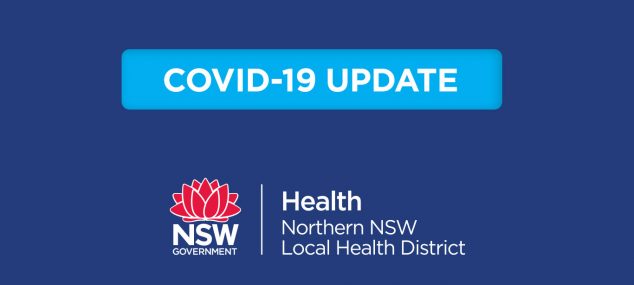
There are no new confirmed cases of COVID-19 in residents of Northern NSW Local Health District.
During the week of 15-21 August there were 10,053 tests conducted among residents of the Northern NSW Local Health District, compared to 18,198 the previous week.
“I want to thank everyone who has come out for testing these past few weeks,” Ms Weir said.
“These numbers need to stay high, and I encourage others who may have symptoms to not hesitate in coming forward for testing. It’s one of the simplest things you can do to help your close circle and our wider community.
"The more our community gets tested, the better chance we have of finding any new cases quickly, which helps make the work of our health teams easier and provides us with a more complete picture of the current outbreak.
Symptoms of COVID-19 can include a runny nose, scratchy or sore throat, cough, fever, shortness of breath, headache, tiredness, loss of taste or smell, nausea, diarrhoea or muscle aches.
To find your nearest testing clinic, visit https://www.nsw.gov.au/covid-19/how-to-protect-yourself-and-others/clinics or contact your GP.
The current stay-at-home orders in regional NSW have been extended by two weeks, until at least 11:59pm on 10 September, in line with existing orders for the Greater Sydney area.
The restrictions for regional NSW are available at: https://www.nsw.gov.au/covid-19/rules/affected-regions.
“Please stay home, and only leave your home if you have a reasonable excuse. Do not travel outside your local area if you can avoid it,” Ms Weir said.
“When you go out for essential shopping or work, you should consider that others you come into contact with may have the virus and not know it.